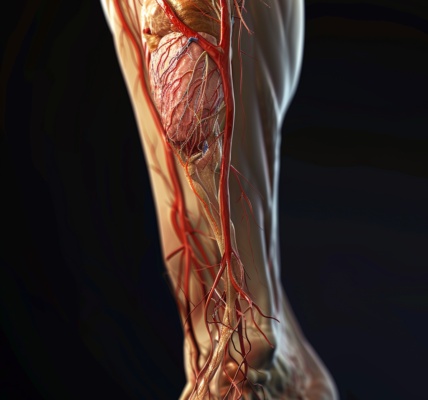The quest for healthier aging has taken a significant step forward, thanks to groundbreaking research led by an Indian-origin scientist at McMaster University in Canada. A recent study has unveiled a previously unknown function of a protein that could pave the way for innovative treatments for age-related diseases.
Published in the esteemed journal Proceedings of the National Academy of Sciences, this research highlights the role of a class of protective proteins known as MANF (Mesencephalic Astrocyte-Derived Neurotrophic Factor). The study reveals how these proteins contribute to cellular efficiency, potentially leading to healthier aging and improved management of age-related illnesses.
As we age, the production of proteins within our cells can become erratic, leading to improper protein formation. This malfunction can overwhelm the cellular cleanup processes, resulting in protein aggregation. Such clumping has been associated with severe conditions like Alzheimer’s and Parkinson’s diseases. Professor Bhagwati Gupta, who supervised the research, explained, “When cells face stress due to protein aggregation, the endoplasmic reticulum—the site of protein synthesis—receives signals to halt protein production. This can lead to a cascade of cellular dysfunction.”
The research team focused on understanding how MANF operates within cells under stress. They employed microscopic worms known as C. elegans as a model organism, creating a system to manipulate MANF levels in these tiny creatures. The findings revealed that MANF plays a crucial role in the cellular disposal system, assisting in the breakdown of accumulated proteins and maintaining cellular health.
Notably, increasing MANF levels activated a natural cleanup mechanism within the cells, allowing them to function more effectively over extended periods. “Although our research was conducted on worms, the implications are far-reaching. MANF is present in all animals, including humans, which means we are uncovering fundamental processes that could be applicable across species,” stated Shane Taylor, a post-doctoral fellow at the University of British Columbia.
The research team is now focused on determining the interactions between MANF and other cellular components. Identifying these relationships is critical for developing MANF as a potential therapeutic agent. The discovery of MANF’s role in maintaining cellular homeostasis opens up exciting possibilities for new treatments aimed at combating age-related diseases.
In the broader context of aging research, this study adds to the growing body of evidence supporting the importance of protein management in cellular health. As aging populations worldwide face increasing challenges related to cognitive and physical decline, understanding the underlying mechanisms of protein aggregation and cellular stress becomes more crucial than ever.
With further investigation into MANF and its cellular interactions, researchers hope to unlock new strategies for promoting healthier aging and mitigating the impact of age-related diseases. The journey toward better understanding the complex biology of aging is ongoing, and studies like this one are vital in shaping future therapeutic approaches.
As the scientific community continues to explore the intricacies of cellular processes, the potential for innovative treatments that enhance quality of life for the aging population remains a promising frontier. The implications of this research extend beyond the laboratory, offering hope for individuals and families affected by age-related conditions.
In conclusion, the findings from McMaster University represent a significant advancement in our understanding of cellular health and aging. By shedding light on the protective role of MANF, researchers are taking important steps toward developing new therapies that could transform the landscape of age-related disease treatment.





